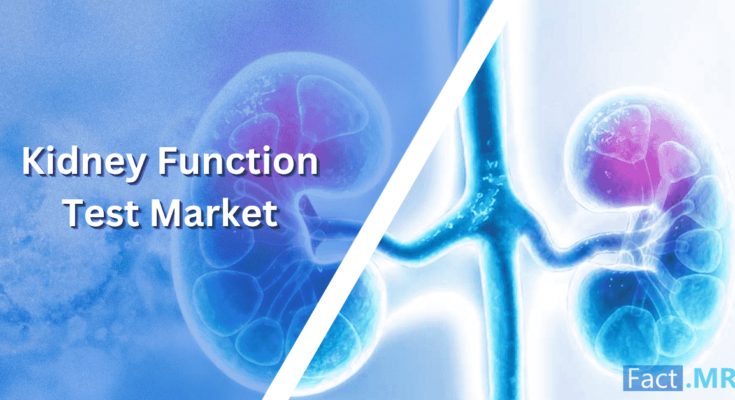The kidneys, two small but mighty organs, are responsible for an array of essential functions in the human body. From filtering waste and toxins to regulating blood pressure and maintaining electrolyte balance, the kidneys play a pivotal role in overall health. However, like any other organ, the kidneys can experience dysfunction and disease. This is why regular monitoring through kidney function tests is crucial. These tests provide valuable insights into the health and functionality of the kidneys, enabling early detection and intervention if any issues arise.
What are Kidney Function Tests?
Kidney function tests, also known as renal function tests, are a set of diagnostic tools that evaluate the efficiency of the kidneys in performing their vital functions. These tests typically involve blood and urine analysis to assess various parameters related to kidney health and function.
Common Kidney Function Tests
1. Serum Creatinine Test: This blood test measures the level of creatinine, a waste product generated by muscle metabolism. Elevated creatinine levels indicate impaired kidney function.
2. Blood Urea Nitrogen (BUN) Test: The BUN test measures the level of urea nitrogen in the blood. Urea is a byproduct of protein metabolism, and elevated BUN levels may indicate kidney dysfunction.
3. Glomerular Filtration Rate (GFR): GFR is a calculation that estimates how well the kidneys filter waste from the blood. A low GFR suggests reduced kidney function and may indicate chronic kidney disease.
4. Urine Tests: Various urine tests, such as urine albumin, urine creatinine, and urine protein tests, evaluate the presence of protein, albumin, and other substances in the urine. These tests help detect kidney damage or disease, such as proteinuria or albuminuria.
Importance of Kidney Function Tests
Regular kidney function tests offer several crucial benefits
1. Early Detection of Kidney Diseases: Kidney function tests can detect kidney diseases and abnormalities at an early stage, allowing for timely intervention. Early detection enables healthcare professionals to implement appropriate treatment plans, potentially slowing down the progression of kidney damage.
2. Monitoring Kidney Health: For individuals with known kidney conditions, regular kidney function tests help monitor the progression of the disease, assess treatment effectiveness, and make informed adjustments if necessary.
3. Assessing Overall Health: Kidney function tests provide insights into an individual’s overall health. Abnormalities in kidney function may indicate underlying health issues such as diabetes, hypertension, or autoimmune diseases. Detecting these conditions early allows for proper management and prevention of further complications.
4. Preventing Kidney-Related Complications: Timely detection and management of kidney diseases through regular kidney function tests can help prevent complications such as kidney failure, cardiovascular diseases, electrolyte imbalances, and bone disorders.

Kidney diseases have become a global health concern, with their prevalence steadily increasing in recent years. This alarming trend has significant implications for public health, as kidney diseases can lead to complications such as kidney failure, cardiovascular diseases, and reduced quality of life. Understanding the causes behind the rising prevalence of kidney diseases and implementing preventive measures is crucial to combat this growing health issue.
Future Aspects of Kidney Function Test Market
The future aspects of the Kidney Function Test Market are promising, driven by advancements in technology, the increasing prevalence of kidney diseases, and the growing demand for accurate and efficient diagnostic tools.
According to Fact.MR’s analysis, the worldwide sales revenue from kidney disease diagnostics is forecasted to rise at a CAGR of 5% and reach a market value of US$ 1.64 billion by 2033.
The detailed analysis report talks about the Key Growth Drivers, Rising Demand Factors, Contributions of Various Start-ups, Country-wise and category-wise Insights along with complete view on the current Market Competition.
Here are some key future trends and developments:
1. Technological Advancements: The kidney function test market is expected to witness significant technological advancements in the coming years. These advancements include the development of innovative biomarkers, improved imaging techniques, and the integration of artificial intelligence (AI) and machine learning (ML) algorithms for more accurate and efficient diagnostic capabilities.
2. Point-of-Care Testing: There is a growing demand for point-of-care testing (POCT) for kidney function assessment. POCT allows for rapid, on-site testing, providing immediate results and facilitating prompt diagnosis and treatment decisions. The development of portable and user-friendly devices for kidney function testing is expected to drive market growth in this area.
3. Personalized Medicine: The future of kidney function testing will likely involve a shift towards personalized medicine. With advancements in genomics and molecular diagnostics, there is a growing understanding of the genetic and molecular factors that influence kidney diseases. This knowledge can lead to the development of targeted therapies and personalized treatment plans based on an individual’s specific genetic profile and disease characteristics.
4. Integration of Digital Health Solutions: The integration of digital health solutions, such as telemedicine, remote patient monitoring, and mobile applications, is expected to revolutionize the kidney function test market. These technologies enable real-time monitoring of kidney function, remote consultations with healthcare professionals, and improved patient engagement and self-management.
5. Increased Focus on Early Detection and Prevention: With the rising prevalence of kidney diseases, there is a growing emphasis on early detection and prevention strategies. The future of kidney function testing will likely involve the development of more sensitive and specific biomarkers, allowing for the early identification of kidney diseases before significant damage occurs. This proactive approach can lead to better outcomes and reduced healthcare costs.
6. Growing Adoption in Emerging Markets: The kidney function test market is expanding in emerging markets, driven by increasing awareness, improving healthcare infrastructure, and rising disposable incomes. The demand for affordable and accessible kidney function tests is expected to drive market growth in these regions.
Causes of the Rising Prevalence of Kidney Diseases
Aging Population: The global population is aging, and older individuals are more susceptible to kidney diseases. Age-related changes in kidney structure and function, along with the presence of other chronic conditions, contribute to the increased risk.
Unhealthy Lifestyles: Sedentary lifestyles, poor dietary choices, and the increasing prevalence of obesity and diabetes are major contributors to the rising prevalence of kidney diseases. These lifestyle factors can lead to conditions such as hypertension and diabetes, which are leading causes of kidney damage.
Environmental Factors: Exposure to environmental toxins, such as heavy metals, pesticides, and pollutants, can contribute to kidney damage and disease. Industrialization, pollution, and inadequate access to clean water in certain regions further exacerbate the problem.
Genetic Predisposition: Some individuals may have a genetic predisposition to kidney diseases. Certain genetic mutations or inherited conditions, such as polycystic kidney disease, increase the risk of developing kidney problems.
Prevention Strategies for Kidney Diseases
Healthy Lifestyle Choices: Adopting a healthy lifestyle is crucial in preventing kidney diseases. This includes regular physical activity, maintaining a balanced diet rich in fruits, vegetables, whole grains, and lean proteins, and avoiding excessive salt and sugar intake. Quitting smoking and limiting alcohol consumption are also important.
Control Blood Pressure and Diabetes: Managing conditions like hypertension and diabetes is vital for kidney health. Regular monitoring of blood pressure and blood sugar levels, adherence to prescribed medications, and lifestyle modifications are key to preventing kidney damage.
Stay Hydrated: Drinking an adequate amount of water helps maintain kidney function by promoting proper filtration and flushing out toxins. It is important to stay hydrated and limit the consumption of sugary beverages.
Avoid Nephrotoxic Substances: Minimize exposure to nephrotoxic substances, such as certain medications, chemicals, and recreational drugs. Follow prescribed dosages and consult healthcare professionals about any potential risks.
Regular Kidney Function Tests: Regular screening with kidney function tests is crucial, especially for individuals at higher risk, such as those with a family history of kidney diseases or chronic conditions like hypertension or diabetes. These tests can detect kidney problems early, allowing for timely intervention and management.
Environmental Awareness and Advocacy: Promoting environmental awareness and advocating for clean water sources and reduced exposure to pollutants can help prevent kidney diseases on a larger scale.
Conclusion
The rising prevalence of kidney diseases worldwide is a significant concern, driven by factors such as aging populations, unhealthy lifestyles, environmental factors, and genetic predisposition. However, by implementing preventive strategies, such as adopting healthy lifestyles, managing chronic conditions, staying hydrated, avoiding nephrotoxic substances, regular kidney function tests, and advocating for environmental awareness, we can make a positive impact in reducing the burden of kidney diseases.
Kidney function tests are invaluable tools for monitoring the health and functionality of the kidneys. By detecting kidney diseases early, monitoring existing conditions, and assessing overall health, these tests play a pivotal role in maintaining optimal kidney function and preventing complications. Regular screening with kidney function tests is essential for individuals at risk of kidney diseases, those with existing kidney conditions, and anyone interested in maintaining their overall well-being. Taking care of your kidneys through regular monitoring can make a significant difference in preserving their function and enhancing your quality of life.
Prevention is key to maintaining optimal kidney health and preserving overall well-being.
Also Read
- Regenerative Medicine: The Future of Healthcare
- Revolutionizing Healthcare: The Remarkable Advancements in Medical Materials
- Transforming Plant-Based Nutrition: A Visionary in the Advancement of Vegan Supplements



